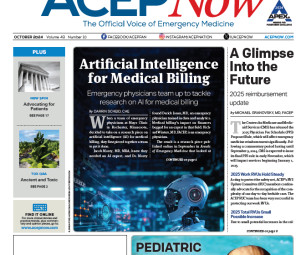A Safety Solution for Emergency Department Staff and Patients
ACEP Now
NOVEMBER 13, 2023
Led by psychiatric-trained nurses, teams responding to behavioral codes used a variety of de-escalation methods including non-confrontational communication, moving the patient to a less stimulating environment, and adjusting medications as necessary. Dr. Santamaria is a current second year medical student at A.T J Emerg Nurs.











Let's personalize your content